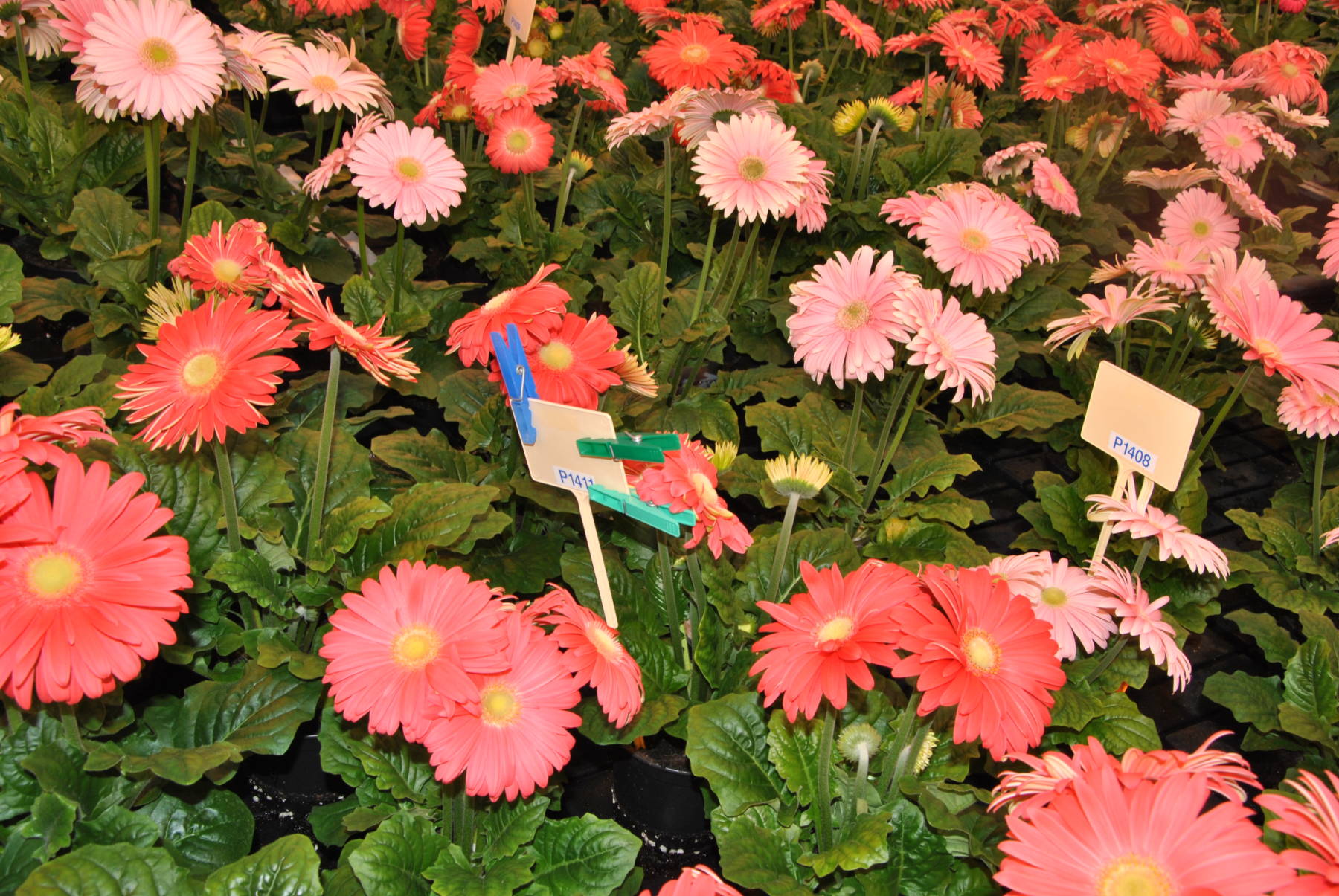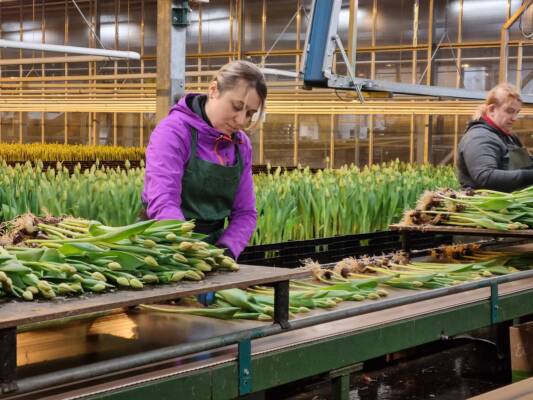Author: Mia Buma
HAMBURG, Germany: A discussion on ‘bad faith’ may sound very negative. However, a recent webinar, organised by CIOPORA Academy 1, gives hopeful insights that China’s future national PVR legislation will be in accordance with UPOV 1991.
Despite its reputation as a hot spot for bad faith applications in trademarks and PVR, China is making considerable improvements in its Intellectual Property systems. At AIPH’s annual congress in Beijing (2019), participants learned that China has prepared far-reaching legislation proposals to get its national PVR legislation in accordance with UPOV 1991. Although it will take some time between finalising legislative text, approval by the National People’s Congress of China, and the bringing legislation into force, the expectation is that this will become a reality in the coming years, and that bad faith applications and other IP and PVR violations will decrease in China.
Bad faith applications in PVR and the legal framework
A bad faith PVR application is the application for PVR in respect of a variety which the applicant did not breed, and is likely to be submitted under a different variety denomination. Obviously, the right to apply for PVR belongs to the person who bred the variety 2. The legal framework of the PVR system uses the first-to-file system: a new plant variety can only be granted with one plant variety right. So, where two applications are made for the same variety, the right will be granted to the application made first. Once the right has been granted, it belongs to the applicant. Where applications are made on the same day, the right belongs to the person who first bred the variety. The applicants must negotiate to determine ownership of the applications right. If they cannot agree, the Plant Variety Office (PVP) must take the decision.
So what happens if an application is made in China for your variety, before you apply for PVR?
If you can reach no agreement with the ‘fake applicant’, you can initiate a court action claiming that you are the breeder and the application is a ‘fake application’, or you can take action before the PVP Office, arguing that the variety is not distinct from your variety which is already marketed abroad. Thanks to the webinar it became clear that the borderline between bad faith and distinctness of the variety is rather small, and the best approach is to include in your allegation to the PVP that the ‘fake variety’ is not distinct, or that the ‘fake applicant’ was not the first-to-file (since the variety is already registered abroad).
PVP Offices versus Courts in China
If the ‘fake application’ has not yet been granted, an objection can be made to the PVP Office. PVP Offices will hear objections based on failure to satisfy the registration criteria (novelty, DUS 3 and appropriate denomination). If the breeder, therefore, can prove that the variety is not distinct from a variety that is already registered, the matter should be considered by the PVP Office. Courts are better placed to rule on evidentiary issues relating to who bred the variety. Courts will bring in officials from the PVP Office to provide expert opinions and guidance. In proving variety identity, the Courts in China accept DNA tests for variety identification if a suitable protocol for the species is available. If there is disparity between the results of the DNA test and DUS growing trails, the result of the latter will prevail. Where there is a dispute about the application rights or the ownership of a variety right, the parties can initiate action before the Courts. The Intermediate People’s Court at the provincial level has first-instance jurisdiction over disputes regarding PVR application rights and ownership rights. The Supreme People’s Court (SPC) Intellectual Property (IP) Tribunal, established in January 2019, has exclusive jurisdiction over appeals. The specialised judges and allied specialists on IP working for this Court, significantly contribute to the professionalism of China’s IP systems.
PVP Office measures do prevent ‘fake applications’
During the last two years, the Ministry of Agriculture in China (MARA) established a large database of agricultural crops (corn, rice, wheat, soybean, cabbage, cucumber etc.). PVP Offices search the database before undertaking DUS testing to see whether the applicant’s reference variety is correct, and to find a similar variety for field observation in order to avoid ‘fake applications’. The National Forestry and Grassland Administration (NFGA), is still in process of establishing their own database for ornamental species, however the PVP Offices will search the CPVO 4 and UPOV 5 databases in the interim. The Offices also determine whether the variety breeding process and parent source are true and reliable 6. Failure to find this evidence could be the basis to reject the application. The PVP Offices plan to establish a live library (garden) and information database of propagating material of already known varieties 7.
Additional protection measures of China’s PVR draft regulations
If there is deception, concealment, forgery, or other such conduct in the application process, the applicant and related persons can be severely punished, depending on the severity of the circumstances. This could include a ban from submitting variety applications for 5 years, notes on personal credit profiles, and the actions could be subject to public announcement.
China’s variety registration system to prevent bad faith PVR registration
The draft PVR regulation contains clear measures to regulate markets for seed and propagating material. The system is similar is to the European Value for Cultivation and Use system (VCU) and does not apply to ornamentals. It requires identification of varieties for promotion which are of good quality and suitable for particular regions, and prevents the same varieties entering the market under different names (one variety – one name principle). Registration requires DUS testing to be carried out and must specify the variety name and the breeders name.
Important lessons from breeder’s experiences in China
Considering the Limagrain case 8 in China, attendants to the CIOPORA Academy webinar received an important lesson: variety registration does not affect a validly granted PVR. However, if the variety is subject to variety registration or variety recording, it must pass registration and recording procedures prior to promotion (even if it has validly granted PVR). So, be aware of variety registrations and recordings, and consider that these may be under another name! Make sure you have strong proof that you bred the variety. This can be in the form of PVR applications and grants in other countries and existence of maintained propagating material of the variety.
Cautious optimism prevails
Clearly, these measures will contribute to a well-functioning PVR system in China, not only in the case of bad faith PVR applications. China’s new draft regulation – in accordance with UPOV 1991- will sustain a better level playing field within the worldwide horticultural business, and support the work, time and costs breeders have invested in creating new and improved varieties. The latter will be even more important in the context of the worldwide challenges of climate extremes, using less fertilisers and fewer plant protection products. All contribute to greater biodiversity, and safer and more sustainable horticulture practices.
This welcome progress must, however, be considered cautiously. It is not clear when China’s draft regulation will enter into force, and, until then, only a limited number of ornamental species are listed in China for which breeders can apply for PVR.
1 CIOPORA Academy Webinar on ‘Bad faith applications of Plant Variety Rights and trademarks in China and countermeasures for breeders’, by Alanna Rennie, Baker McKenzie, Australia, broadcasted live on May 14, 2020.
2 Or where bred in the course of employment or predominantly using an entity’s material, then the variety belongs to that entity.
3 DUS: distinctness, uniformity and stability
4 CPVO: Community Plant Variety Office in the EU
5 UPOV: International Union for the Protection of New Varieties of Plants
6 Article 25 of China’s draft regulation
7 Article 41 of China’s draft regulation
8 The Limagrain case in China for PVR over its “Li He 228”corn variety started in 2015 and Limagrain has been successful in its claim action before the Gansu Intermediate People’s Court in 2018.
About the author
Mia Buma LL.M. is chair of AIPH’s Sparring Partner Group on PVR and IP.











































